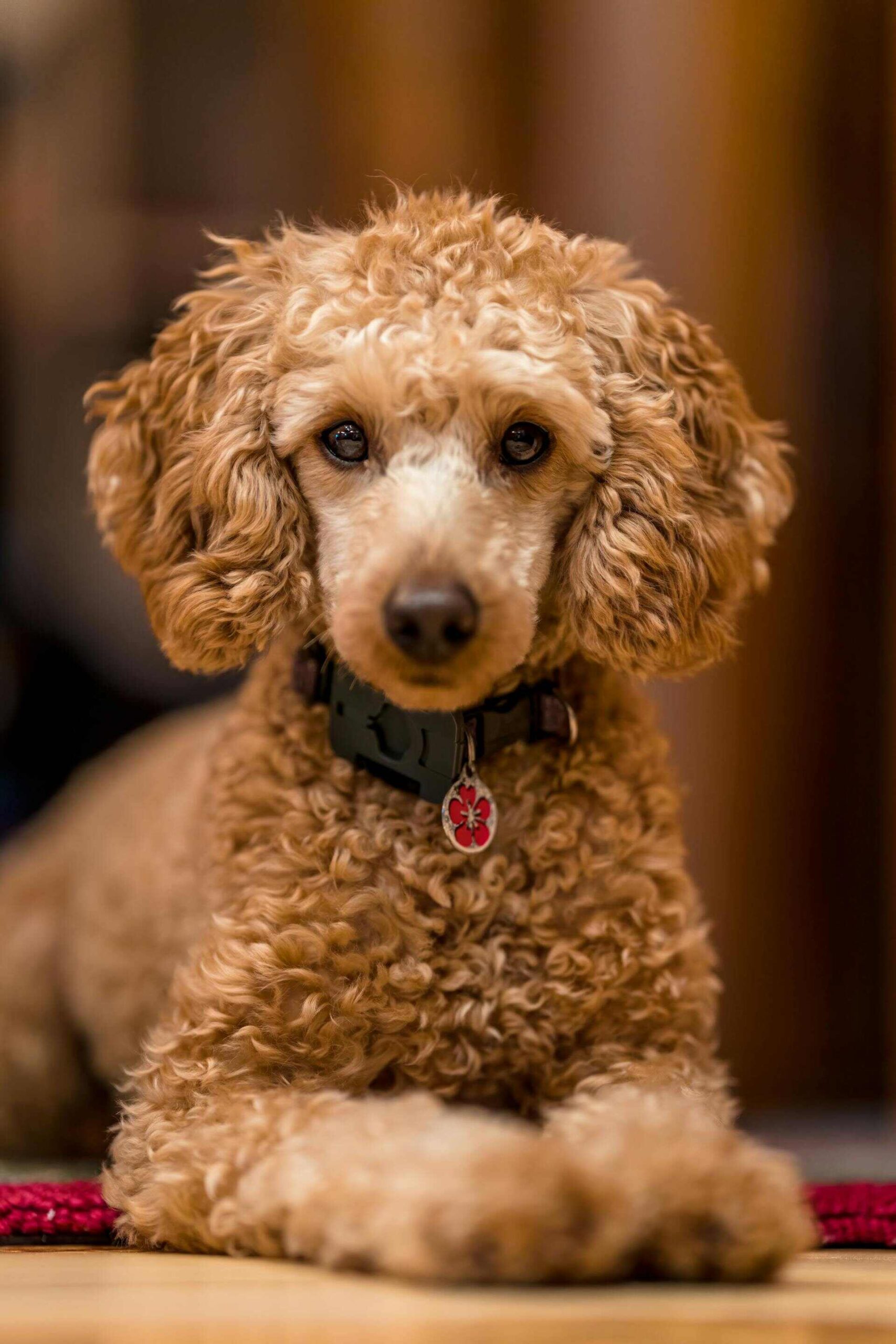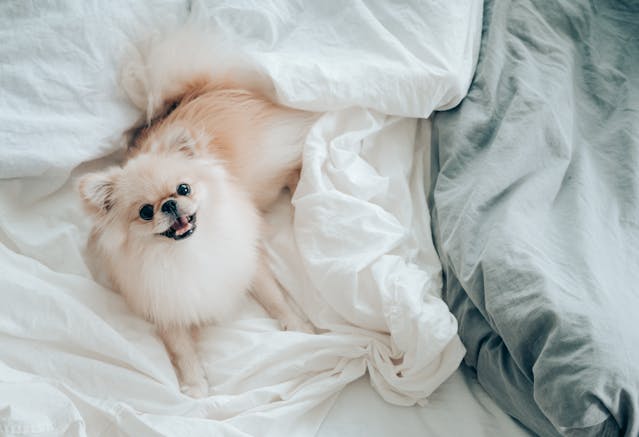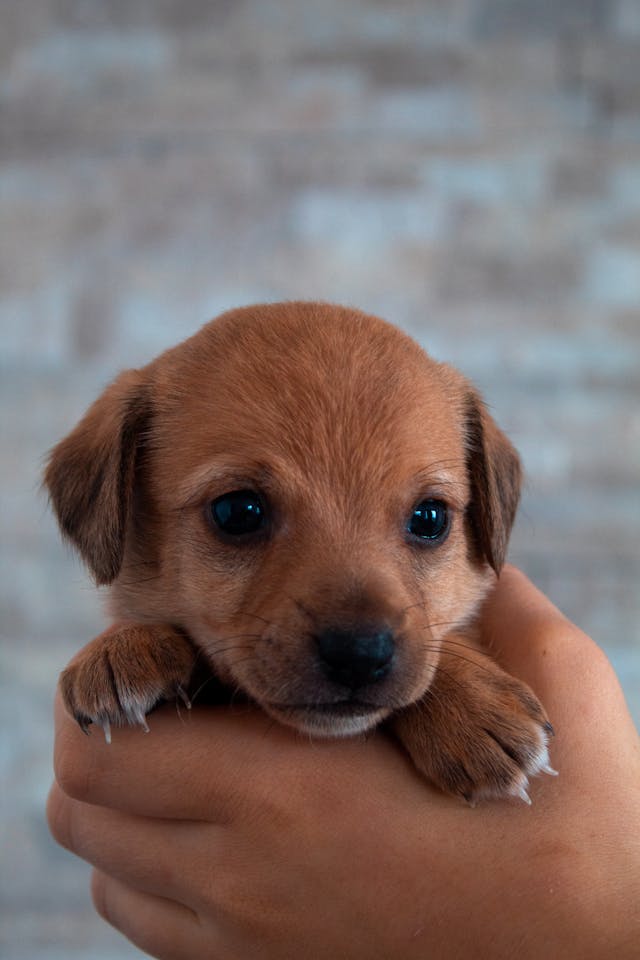
Bringing home a new puppy is a heartwarming experience, filled with joy and excitement. However, it also comes with its fair share of challenges, one of which might be the distressing situation of your 8-week-old puppy crying when you leave the room? This behavior can tug at your heartstrings and leave you feeling helpless, but fear not – understanding why it occurs and implementing strategies to address it can help both you and your furry friend navigate this transitional period with ease.
Table of Contents
8-week-old puppy crying when you leave the room?

Understanding Puppy Behavior
Puppies, much like human newborn children, experience different formative stages that altogether impact their behavior and enthusiastic reactions. Central to these stages is the basic stage of connection and holding, where puppies frame profound passionate associations with their essential caregivers – you, in this case. Amid this stage, which regularly happens amid the primary few weeks of life, puppies depend intensely on their caregivers for consolation, security, and direction.
It’s critical to recognize that at 8 weeks ancient, your puppy is still exceptionally much within the early stages of improvement, and their behaviors are generally driven by intuitive. Partition from their essential caregiver – you – can trigger sentiments of uneasiness and fear of surrender, as puppies are ordinarily connected to explore for companionship and security from their bunch.
Reasons Behind Crying Behavior
When your puppy cries upon your takeoff, a few components may be contributing to this behavior. Firstly, crying is their essential implies of communication; it’s their way of communicating inconvenience, uneasiness, or a require for consideration. morever, puppies, like all social creatures, flourish on companionship and may feel helpless and frightened when alone. This fear is opened up in a modern environment, absent from the recognition of their littermates and mother.
Besides, at 8 weeks, your puppy is still altering to their unused environment, learning to explore the world around them, and setting up a sense of security in their domestic. This alteration period can be overpowering, and your puppy’s cries may be a sign of their vulnerability and unease.
Tips to Address Crying Behavior

Overseeing with a crying puppy requires resilience, consistency, and sensitivity. Here are a number of down to tips to help ease their inconvenience.
1. Setting up a plan: Follow to a consistent arrange for supporting, break, and rest. Consistency gives a sense of security for your puppy, making a distinction to ease their uneasiness.
2. Moderate desensitization: Relentlessly familiarize your puppy to being alone by practicing brief flights and persistently Development over time. Start with brief unfortunate insufficiencies, such as wandering out of the room for a few seconds, and relentlessly work your way up to longer periods
4. Positive support preparing: Offer your puppy comforting items, such as a delicate cover or a favorite toy, to supply them with a sense of security in your nonappearance. A chunk of clothing along with your fragrance can moreover offer assistance console them amid your nonappearance.
4. Positive support preparing: Utilize positive fortress strategies, such as treats and praise, to compensate calm behavior when cleared out alone. Energize flexibility by invigorating positive affiliations with being alone Such as giving treats or toys for a while after you leave.
Supervising Division Uneasiness
In a few cases, a puppy’s crying behavior may illustrate essential uneasiness, a condition characterized by plan inconvenience when confined from their caregiver. Within the occasion that you simply suspect your puppy is experiencing segment uneasiness, it’s fundamental to address it promptly to dodge empower inconvenience.
Here are steps you will be able take
1. Recognizing side impacts: Be careful for signs of uneasiness, such as intemperate, crying, pacing, harming behavior, Recognizing these side effects and being prepared to take early action.
2. Moderate desensitization: Relentlessly familiarize your puppy to being alone by practicing brief flights and persistently Development over time. Start with brief unfortunate insufficiencies, such as wandering out of the room for a few seconds, and relentlessly work your way up to longer periods
3. Giving consolation things: Offer your puppy comforting items, such as a delicate cover or a favorite toy, to supply them with a sense of security in your nonappearance. A chunk of clothing along with your fragrance can moreover offer assistance console them amid your nonappearance.
4. Looking for assistance: Inside the occasion that your puppy’s fragment uneasiness continues in appear despise toward of your endeavors, consider searching for course from a able coach or behaviorist. They can give personalized strategies and your puppy’s particular needs viably.
Conclusion
8-week-old puppy crying after you leave the room? can be challenging, But a lot of hard work, understanding, and proactive mediations, you’ll offer offer assistance your puppy feel more secure and sure in your nonattendance. Be past any question , building a solid bond in conjunction together with your puppy takes time and exertion, but the rewards of a cheerful, well-adjusted companion are well worth it. Put these strategies into practice and don’t waver from giving love, you’ll be able offer offer assistance your puppy examine this formative organize with ease and set the establishment for a long persevering bond built on acknowledge and understanding.
Why is my 8-week-old puppy crying when I leave?
Your puppy may cry due to separation anxiety or a natural need for companionship. At this age, they’re adjusting to being away from their littermates and rely on you for security.
How can I help my puppy calm down when I leave?
Establish a routine, provide comfort items, and gradually acclimate them to being alone. Positive reinforcement for calm behavior can also help them associate alone time positively.
When should I worry about my puppy’s crying?
Excessive crying or signs of distress like destructive behavior may indicate separation anxiety. Seek professional guidance if these behaviors persist to ensure your puppy’s well-being.
